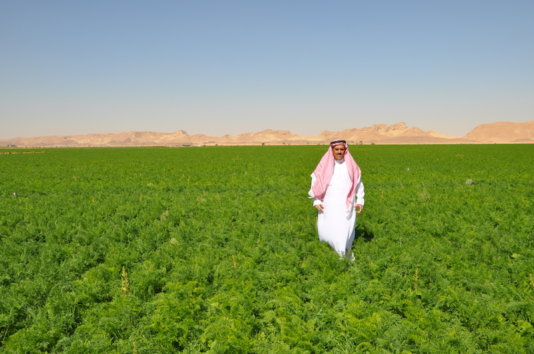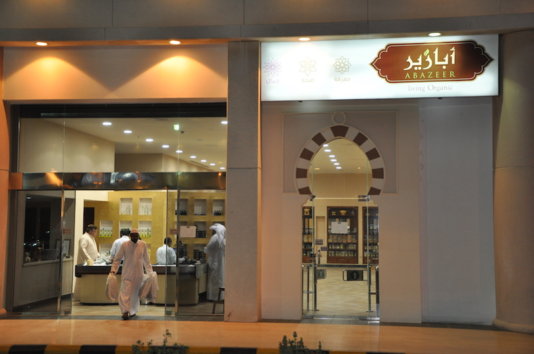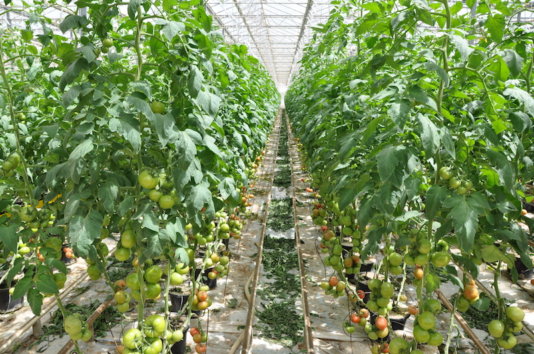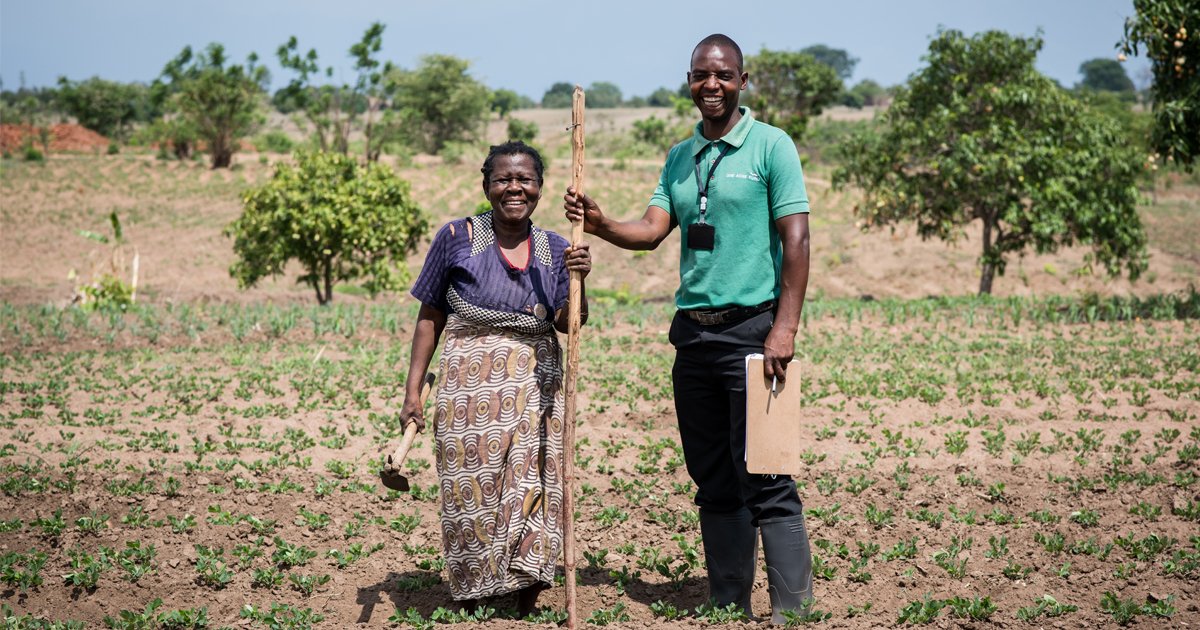- About
- Topics
- Picks
- Audio
- Story
- In-Depth
- Opinion
- News
- Donate
- Signup for our newsletterOur Editors' Best Picks.Send
Read, Debate: Engage.
| January 11, 2017 | |
|---|---|
| topic: | Sustainable Agriculture |
| tags: | #German international Cooperation (GIZ), #Khalid Al-Haddad, #organic agriculture, #Saudi Arabia |
| located: | Saudi Arabia |
| by: | Frank Odenthal |
Khalid Al-Haddad is particularly proud of his homemade bread.
Not only is it baked in the in-house oven, but all the ingredients come from his own produce. Al-Haddad is the owner of the "Abazeer" market in the center of Jeddah on the Red Sea, the second-largest city in Saudi Arabia. And the shop's assortment is impressive.
"We offer a wide range of organic fruits and organic vegetables," Al-Haddad says. There are also biscuits, spices and even homemade cheese. "And our organic peppermint seems to be a very special offer. We even get orders from Egypt and Lebanon for it."
When Al-Haddad founded his "Abazeer" market in 1985, the Saudi government had just intensified farming in the mostly desert landscape to achieve self-sufficiency in wheat production. Then, at the beginning of the nineties, Saudi Arabia was one of the world's largest exporters of wheat. Quite impressive, considering that less than half a percentage point of the country's area is available for agriculture.
The success, however, came at a price.
It was very hard to turn the fields from sandy soil into fertile land. There were highly inefficient irrigation methods in use, such as giant irrigation systems, where up to half of the sprayed water evaporates before it reaches the ground. The consequences are apparent today. The groundwater level in Saudi Arabia has declined rapidly over the past decades. Many wells have fallen dry, even in fertile areas. The Kingdom has now recognized the problem of water deficiency. King Abdullah, who was in office from 2005 until his death in 2015, made some tentative attempts to convince his countrymen to be more careful with the dwindling water reserves, especially in agriculture. The promotion of particularly water-intensive wheat cultivation is stopped; and there are export stops imposed on other highly water consuming products.
In the Hejaz, the coastal region at the Red Sea, Khalid Al-Haddad runs three large farms. Besides tomatoes and garlic, he also breeds potatoes and beans, cucumbers and zucchini, aubergines, peas and peppers, but also exotic fruits such as papaya, mango, peaches and apricots. His farms have now completely shifted to droplet irrigation. So he spares more than forty percent of water over the irrigation systems, Al-Haddad says.
And that is only the beginning. He started composting the dried-up remains and using them to further fertilize the land. He sows in certain seeding sequences and uses particular nitrogen-binding plant varieties. And of course, he refuses to use artificial fertilizers and pesticides, he proudly assures us. All that improves the quality of the soils and thus their water-retaining capacity – at least that's what the German consultants have told him.
The consultants were the experts of the GIZ, the German Association for International Cooperation, who have been on the ground since 2005 on behalf of the Saudi Arabian Agricultural Ministry.
According to Saad Khalil, the Vice Minister of Agriculture, the experience on the organic sector was decisive for choosing the Germans as consultants. "We had to create a reliable legal framework for organic agriculture." In 2011, a Saudi organic seal was introduced. The raw model was the well recognised EU seal. "It is the first of its kind on the Arabian Peninsula," Khalil says.
Currently, 16,000 hectares of land are managed according to the new organic framework, which is almost two per cent of the country's total agricultural area. By 2017, the share should rise to five percent. A realistic goal, taking into account that the royal family has announced to convert the entire production of its huge farms towards organic methods.
"The problem here is that it is not possible to constantly offer organic products all year round," Vice Minister Khalil explains. "It doesn't make sense to take tremendous steps of advertising organic peppers if you can not supply organic peppers for the next six months?" The availability of seed and fertilizers is another problem, according to Khalil. “In the short term, imports can compensate those shortages. The Ministry of Agriculture is already negotiating with potential suppliers from the Mediterranean and the Middle East.”
As of today, there are thirty organic supermarkets throughout the country. And the large conventional supermarkets have started to reserve large parts of their shelves for organic products. Eco food at the stands of the big weekly markets in Riyadh are regularly sold out after just a few hours. Even an organic delivery service is now operating the capital.
It seems as if the kingdom of Saudi Arabia, often critizised for its ruthless approach to religious interpretation and its fixation on oil and other carbon-based fuels production, has taken some important steps towards a more sustainable future.
By copying the embed code below, you agree to adhere to our republishing guidelines.



